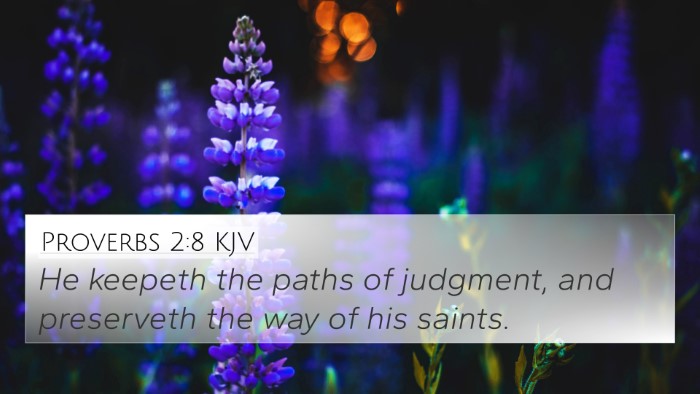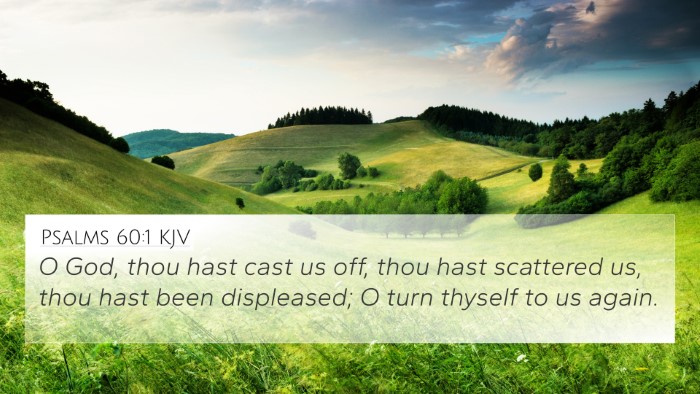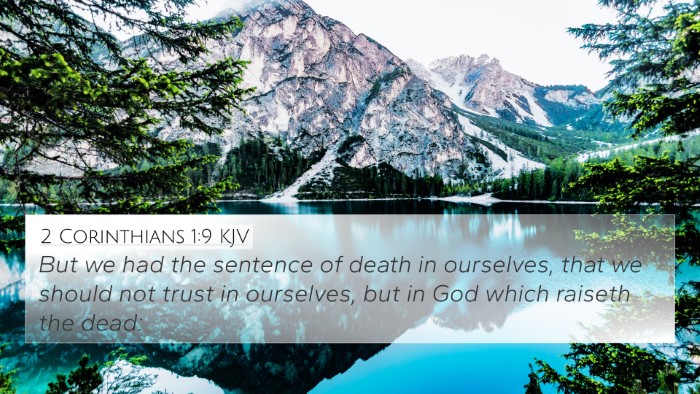Understanding Psalms 16:1
Psalms 16:1 states: "Preserve me, O God: for in thee do I put my trust." This verse encapsulates a deep expression of faith and dependence on God, reflecting the psalmist's reliance on divine protection and guidance.
Key Themes in Psalms 16:1
- Divine Preservation: The psalmist calls upon God to preserve him, indicating a trust in God's ability to protect.
- Faith and Trust: The phrase "for in thee do I put my trust" highlights a deep-seated faith in the Lord amidst uncertainties.
- Prayerful Petition: The verse is a prayer, illustrating the personal relationship between the believer and God.
Commentary Insights
Combining insights from various public domain commentaries, the meaning of this verse can be elaborated as follows:
Matthew Henry's Commentary
Matthew Henry emphasizes the psalmist’s recognition of God as his sole protector. He notes that this plea is not just a request for safety, but an acknowledgment of God’s sovereignty in the believer's life. Henry points out that true faith involves not merely asking for help but resting securely in God’s care.
Albert Barnes' Commentary
Albert Barnes stresses the idea of trust as an active reliance on God. He interprets “Preserve me” as a call for ongoing divine involvement in the psalmist's life. Barnes suggests that this verse reflects a personal relationship where the believer actively seeks God's presence and guidance, asserting that trust in God leads to spiritual security.
Adam Clarke's Commentary
Adam Clarke discusses the importance of the phrase "O God," pointing out that it signifies an appeal to the personal and covenantal nature of God. Clarke notes that calling upon God in times of need enhances the believer's sense of humility and dependence, suggesting that this verse serve as a model for prayerful dependence on God.
Bible Verse Cross-References
This verse can be analyzed in light of various other scriptures that echo its themes of trust and divine preservation. Here are some cross-references:
- Psalm 31:14 - "But I trusted in thee, O LORD: I said, Thou art my God."
- Proverbs 3:5-6 - "Trust in the Lord with all thine heart; and lean not unto thine own understanding."
- Isaiah 12:2 - "Behold, God is my salvation; I will trust, and not be afraid."
- Isaiah 26:3 - "Thou wilt keep him in perfect peace, whose mind is stayed on thee: because he trusteth in thee."
- Philippians 4:6-7 - "Be careful for nothing; but in every thing by prayer and supplication with thanksgiving let your requests be made known unto God."
- 1 Peter 5:7 - "Casting all your care upon him; for he careth for you."
- Romans 15:13 - "Now the God of hope fill you with all joy and peace in believing, that ye may abound in hope, through the power of the Holy Ghost."
- Hebrews 13:5-6 - "For he hath said, I will never leave thee, nor forsake thee. So that we may boldly say, The Lord is my helper."
Interpreting Psalms 16:1 with Cross-References
By cross-referencing Psalms 16:1 with the other scriptures mentioned, one can observe the consistent theme of divine trust and preservation throughout the Bible. Each reference contributes to a richer understanding of the original verse:
-
Connections: Both Psalm 31:14 and Psalms 16:1 demonstrate an active declaration of trust in God during times of peril.
-
Thematic Links: Proverbs 3:5-6 introduces the wisdom of relying on God rather than our understanding, which complements the sentiment of Psalms 16:1.
-
Encouragement: Isaiah's declarations in Isaiah 12:2 and 26:3 encourage believers to trust God for salvation and peace, connecting to the plea for divine preservation in Psalms 16:1.
-
Reassurance: 1 Peter 5:7 communicates the assurance of God’s care in relation to believers’ trust, mirroring the essence of Psalms 16:1's request for preservation.
-
Prayerful Approach: Both Philippians 4:6-7 and Psalms 16:1 underscore the importance of bringing concerns to God in prayer, underlining the necessity of faith.
Conclusion
Psalms 16:1 is a profound expression of faith that resonates deeply within the broader narrative of the Bible. By exploring this verse alongside its cross-references, believers can gain valuable insights into the nature of trust, divine care, and the importance of prayer. The interconnectedness of scripture fosters a richer understanding of God's consistent character and the believer's relationship with Him.
Tools for Bible Cross-Referencing
For those seeking to delve deeper into comparative Bible verse analysis, utilizing tools for Bible cross-referencing can enhance study and understanding:
- Bible concordance
- Online cross-reference guides
- Printed or digital cross-reference Bible study materials
- Scripture chain references for thematic studies






















